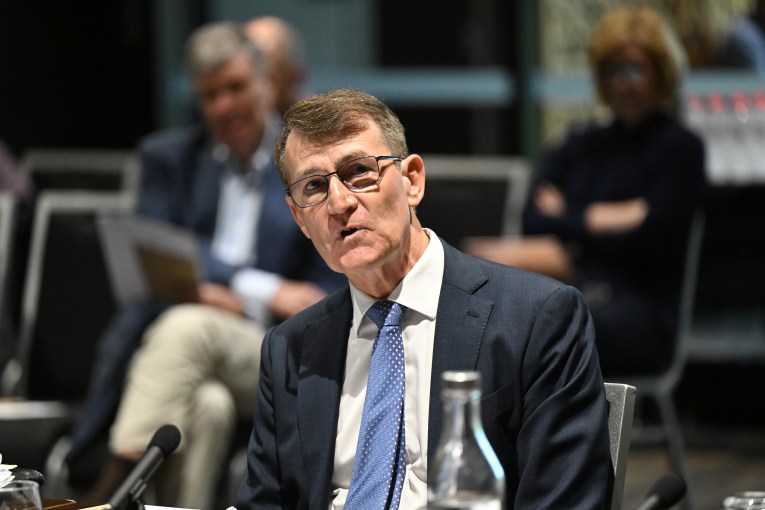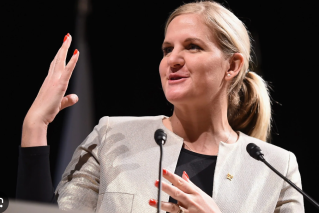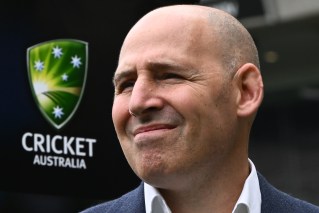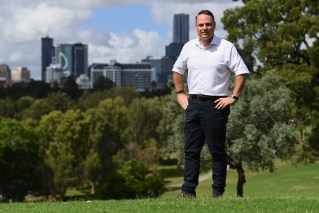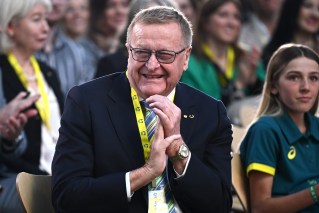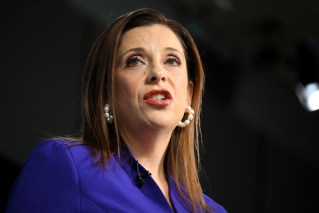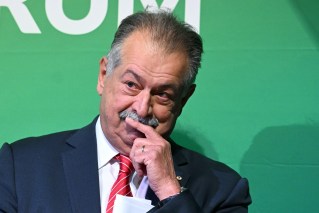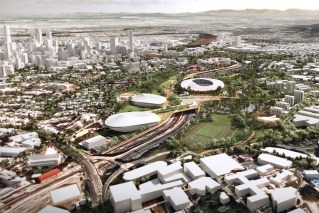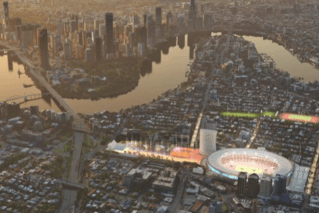No dice: Government green lights 27 points for Games HQ, but Vic Park misses out
The state government has rejected a review’s key recommendation for a “world-class” new stadium at Victoria Park as centre stage for the 2032 Olympic and Paralympic Games, opting instead for Suncorp Stadium and Brisbane’s main athletic venue.

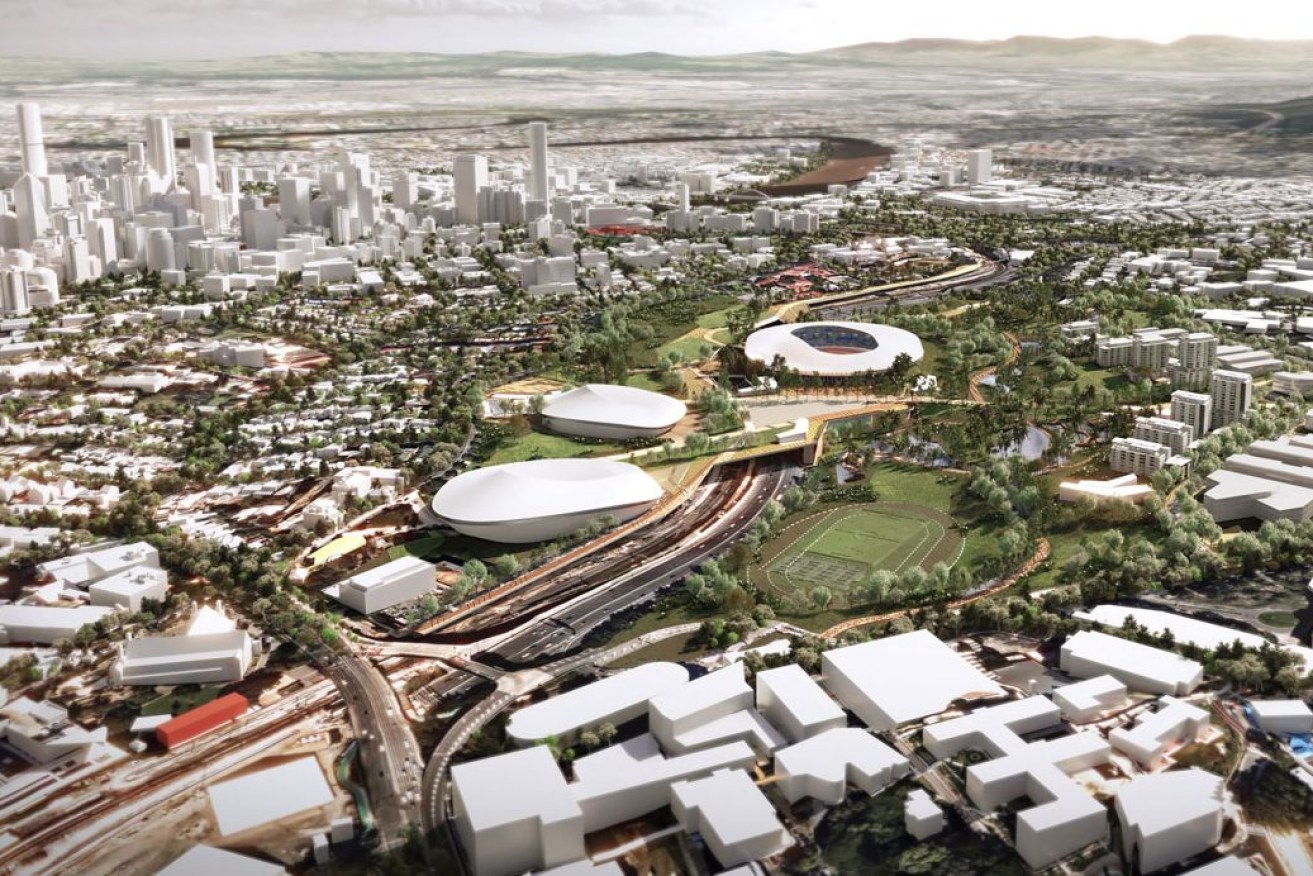
Premier Steven Miles and Minister State Development and Infrastructure Grace Grace in responding to a government ordered review of the 2032 Games, said it was not possible to build a stadium within the allocated $7.1billion budget it shares with the Commonwealth Government.
“The Review panel recommended a brand new multi-billion dollar stadium at Victoria Park. However, as the reviewers noted, significantly more work is required to understand the opportunity and before these preliminary findings can be relied upon.
“The Government does not believe it would be possible to deliver any new stadium at Victoria Park within the existing agreed funding, and the IOC has noted that a new stadium for the Olympic and Paralympic Games sits outside the “new norm” of using existing or already planned venues,’’ they said in a statement.
The move by the Miles government flies in the face of the review which recommended against the Queensland Sport and Athletics Centre (QSAC) at Nathan being used as an Olympic and Paralympic venue to host track and field events as presented too many challenges with transport, accessibility and topography.
The cost of an upgraded 14,000 QSAC Stadium to meet legacy requirements would cost $600million and a further $1billion investment was required to meet Games operations and a 40,000 seating capacity.
QSAC Stadium is comprised of temporary aluminium seating from the 1982 Commonwealth Games and a western stand did not meet current standards for accessibility under the Disability and Discrimination Act.
“In the event of a redevelopment of QSAC Stadium, a number of high-performance athletes preparing for world championships, or an Olympic, Paralympic or Winter Olympic Games, would be displaced from the high-performance training facilities at QSAC, and alternative facilities of the same level would need to be made available,’’ the review stated.
They said the state government is instead favouring investigating upgrades to the Queensland Sports and Athletes Centre (QSAC) and Suncorp Stadium which are the state’s two highest used venues.
In accepting 27 of the 30 recommendation from the government ordered review, the government said the Gabba rebuild would not go ahead either.
“Instead (it will be) replaced with a more modest enhancement of the existing facility in consultation with AFL, Cricket Australia, and other stakeholders. Those sports will no longer be displaced from the Gabba, and East Brisbane,’’ the statement said.
The government said the review findings identified new opportunities to deliver “value for money” for Queenslanders while supporting the government’s legacy vision.
“This Review was one of my very first acts as Premier of Queensland and was driven by what Queenslanders told me was important to them – bang for buck and a lasting legacy.
“No one wants to see money spent on facilities that are only needed for four weeks.
“Instead, this new direction will deliver decades of benefit to local schools, community athletics programs and Olympic and Paralympic athletes in 2032 and beyond.
The review recommended the Victoria Park option be considered for approval as a “matter of priority”.
The proposed arena abandons plans for the original contentious Gabba but would deliver Brisbane’s need for a “world class stadium and arena”, the Sports Venue Review stated.
The “marginally” more expensive cost of the Victoria Park stadium would meet all the criteria necessary for international standard stadium to replace the “end-of-life” Gabba the review said.
“The cost of a stadium in Victoria Park ($3-$3.4 billion) is likely to be marginally more expensive than the full Gabba rebuild (more than $3 billion) with better operational efficiencies and outcomes that would deliver a true international standard venue, enabling Brisbane to compete with other top stadiums in Australia and generate [an] additional premium seating revenue,” the review found.
The Gabba rebuild had shortcomings due to its space restrictions with a likely cost ballooning to around $3billion plus up to $360million in displacement costs for AFL and cricket.
“The construction of a stadium on an inner-city greenfield site allows a smooth transition with no displacement for cricket and AFL while a new stadium is constructed.”
The Gabba rebuild championed by previous Queensland Premier Annastacia Palaszczuk sparked a public backlash and prompted her successor to launch a review in December. Premier Steven Miles appointed former Brisbane Lord Mayor Graham Quirk to spearhead the review of the proposed games infrastructure.
The review said the public perception and experience of the Gabba is very different to the reality regarding its current condition”.
Following the review’s release, Mr Quirk told ABC Brisbane the Victoria Park option was about building what is needed and a legacy for Queenslanders.
“If a full Gabba rebuild was to occur, you still don’t end up with a top-level tier one stadium because of the fact that it’s very limited by space, and for that reason, that’s where we landed on Victoria Park,” he told ABC Brisbane.
In a Facebook post this morning the Victoria Park/Barrambin Residents Action Group (VPBRAG) asked their members to lobby their state and federal MPS against the Victoria Park option.
“It is really important we push back on this notion. The State Government does not have to accept it so we need to let them know how we feel about it,’’ VPBRAG posted.
The review also recommended the establishment of the Brisbane Arena, known as Brisbane Live, an indoor entertainment venue which would be also suitable for Olympic and Paralympic events, costing $2.5 billion at Roma Street Parkland, adjacent to the Normanby Fiveways intersection.
Brisbane Live would replace the Brisbane Entertainment Centre (BEC) at Boondall which will be 50 years old by the time of the 2032 Games.
It found there have been only 12 concerts per calendar year in 2023 and 2024 at BEC , Suncorp Stadium and the Gabba.
“The detailed business case found that the lack of an inner-city indoor entertainment area with seating capacity above 15,000 limited the ability to create a precinct catalyst that would attract premium live events and visitors to Brisbane.’’
The review’s 30 recommendations follows its examination of the Brisbane 2032 sports venues with a focus on the new and upgraded sports venues.
In the past 60 days, the review assessed 28 potential venue sites, considered more than 900 public submissions and met with 130 stakeholders. The review’s terms of reference had four essential criteria – value for money, fitness-for-purpose, deliverability and community legacy.
Any proposed changing of sporting venue will also require approval from the federal government, providing almost 50% of funding, as well as the bodies which fall under the Organising Committee for the Olympic Games (OCOG).
The review recommended against the Queensland Sport and Athletics Centre (QSAC) at Nathan being used as an Olympic and Paralympic venue to host track and field events as presented too many challenges with transport, accessibility and topography.
The cost of an upgraded 14,000 QSAC Stadium to meet legacy requirements would cost $600million and a further $1billion investment was required to meet Games operations and a 40,000 seating capacity.
QSAC Stadium is comprised of temporary aluminium seating from the 1982 Commonwealth Games and a western stand did not meet current standards for accessibility under the Disability and Discrimination Act.
“In the event of a redevelopment of QSAC Stadium, a number of high-performance athletes preparing for world championships, or an Olympic, Paralympic or Winter Olympic Games, would be displaced from the high-performance training facilities at QSAC, and alternative facilities of the same level would need to be made available,’’ the review stated.
Inner-city Albion also appeared to present too many problems with panel recommending against building an indoor sports centre at the Albion Park Raceway site.
“Delivery of an indoor sports centre at Albion Park Raceway has significant site constraints, program delay risks, and precinct and displacement costs that far exceed the current project budget.
“Alternative venue locations in the Albion precinct have a greater level of constraint, costs and program, delay risks compared with the Albion Park Raceway site,’’ the review found.
